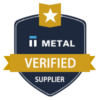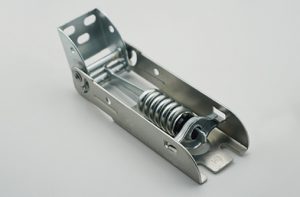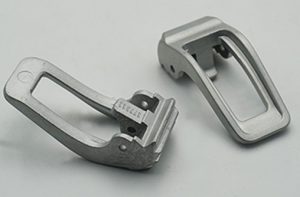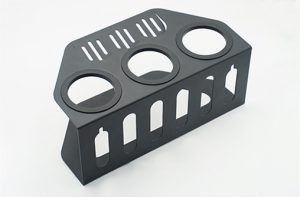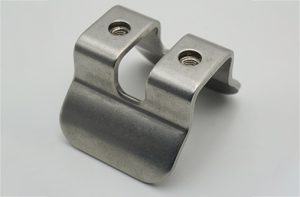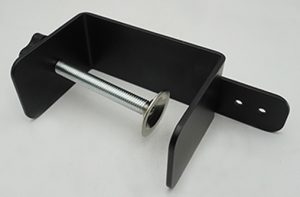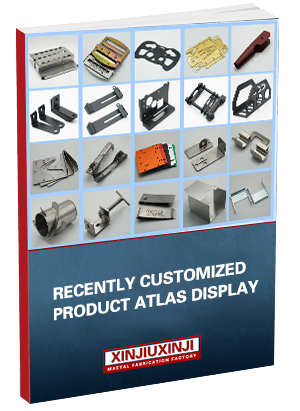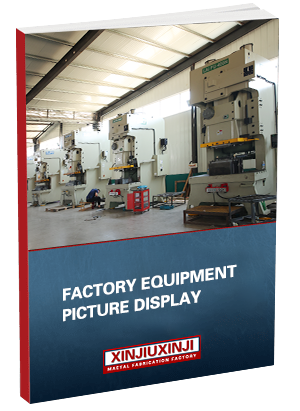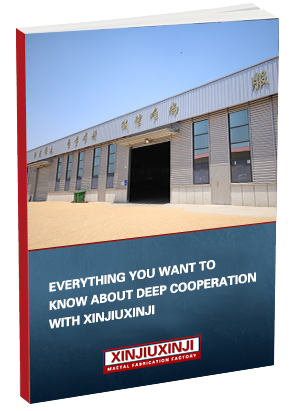Marine & Shipbuilding
In the Marine & Shipbuilding industry, metal components play a crucial role in ensuring the structural integrity, safety, and functionality of vessels. These components must be designed to withstand harsh marine environments, which include exposure to saltwater, humidity, and extreme temperatures. Key requirements for these metal parts include corrosion resistance, high strength-to-weight ratios, and precision manufacturing to ensure proper fit and performance.

At Xinjiuxinji, we specialize in the custom machining of metal parts tailored for the Marine & Shipbuilding sector. Our ISO 9001:2015 certification guarantees that we adhere to stringent quality standards. We leverage advanced manufacturing techniques and high-grade materials to produce metal components that meet or exceed industry specifications. Our extensive experience enables us to deliver parts that offer exceptional durability and performance, ensuring they can withstand the demanding conditions of marine operations while providing reliable and efficient solutions for our clients.
Metal components are essential in the Marine & Shipbuilding industry, providing the structural framework and functional elements necessary for ship construction and repair. These components must meet stringent requirements for strength, durability, and corrosion resistance to withstand harsh marine environments.
Metal-Stamped Components
Hull Plates
These plates form the outer shell of a vessel, requiring high tensile strength and corrosion resistance to endure harsh sea conditions. The choice of material affects the ship’s longevity and performance.
Deck Beams
Deck beams provide structural support and must have high load-bearing capacity while being lightweight. They often require precise machining to fit seamlessly with other components.
Frames
Frames are the backbone of the ship’s structure, ensuring stability and strength. They must be manufactured with exact dimensions to maintain the integrity of the hull.
Bulkheads
Bulkheads separate compartments within the ship, helping to manage buoyancy and stability. They need to be watertight and robust enough to withstand internal pressures.
Propeller Shafts
Propeller shafts transmit power from the engine to the propellers. They must be made from high-strength materials to resist bending and corrosion, ensuring efficient propulsion.
Hatch Covers
These covers protect the cargo hold from water ingress. They require a tight seal and corrosion resistance, as they are constantly exposed to the elements.
Portholes
Portholes provide light and ventilation but must be watertight and durable. They are often made from specially treated metals to enhance resistance to saltwater.
Anchor Components
Components such as anchor chains and anchors need to be extremely robust and corrosion-resistant, given their exposure to harsh marine conditions and their critical safety role.
In summary, the Marine & Shipbuilding sector demands precision-engineered metal components that can withstand the challenges of maritime environments. Using high-quality metal stamping processes, Xinjiuxinji delivers parts that meet these stringent requirements, ensuring both safety and performance in marine applications.
In the Marine & Shipbuilding industry, various metal materials are crucial for constructing robust and reliable vessels. Each material offers unique properties that enhance performance, safety, and longevity in marine environments.
Common Metals Used In This Field
Steel
Steel is renowned for its exceptional strength and durability, making it the primary choice for hull construction. Its ability to withstand high loads and resist deformation under pressure ensures structural integrity. Additionally, steel can be alloyed with other elements to improve corrosion resistance, essential for longevity in marine conditions.
Aluminum
Aluminum is lightweight and offers excellent corrosion resistance, making it ideal for smaller vessels and components where weight reduction is critical. Its malleability allows for intricate designs, and it enhances fuel efficiency without compromising strength, thus improving overall performance in marine applications.
Stainless Steel
Stainless steel combines strength with superior corrosion resistance, especially in saltwater environments. It is commonly used for fittings, railings, and fasteners due to its aesthetic appeal and low maintenance requirements. This metal ensures that parts remain functional and visually appealing over time.
Bronze
Bronze is valued for its corrosion resistance and durability, particularly in marine hardware and propellers. Its resistance to seawater makes it suitable for components exposed to harsh environments, ensuring reliability and performance over time.
Titanium
Titanium is highly resistant to corrosion and provides outstanding strength-to-weight ratios, making it ideal for critical components that require lightweight yet robust materials. Its application in specialized vessels enhances performance and durability in challenging marine conditions.
Carbon Steel
Carbon steel offers good strength and toughness, making it suitable for various structural components in shipbuilding. While it requires proper coatings to enhance corrosion resistance, its cost-effectiveness and ease of fabrication make it a popular choice.
Nickel Alloys
Nickel alloys exhibit high strength and excellent resistance to corrosion and heat, making them suitable for high-performance applications such as engine components. Their durability is critical in maintaining performance under extreme conditions.
In summary, the selection of appropriate metal materials is essential for the durability and performance of marine vessels. Each material contributes unique properties that enhance the overall functionality and longevity of marine components, ensuring safety and reliability in challenging conditions.

Your Trusted Partner in Metal Custom: The Xinjiuxinji Advantage
Xinjiuxinji is ISO 9001:2015 certified, reflecting our commitment to quality and precision in manufacturing metal components for the Marine & Shipbuilding industry. With extensive experience, we meet stringent customer requirements, ensuring that our products excel in both accuracy and reliability. Additionally, we offer customized solutions tailored to specific project needs, optimizing processes to enhance performance and efficiency, thereby supporting our clients in achieving their goals.






 +86 18892239158
+86 18892239158
